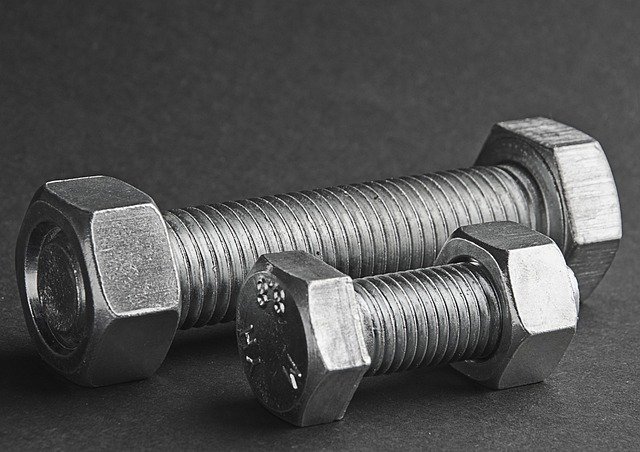Welding Training Opportunities in Germany
For individuals residing in Germany, welding training presents a pathway to exciting career prospects. No prior experience or specialized education is required to embark on this journey in a dynamic sector. With a focus on welding and metal fabrication, training can lead to employment in various fabrication companies.

Exploring Opportunities in Welding Training
The German welding education landscape encompasses multiple pathways for skill development. Vocational training programs typically last between two to three years and combine classroom instruction with practical workshop experience. Students learn various welding processes including MIG, TIG, stick welding, and specialized techniques for different materials. Many programs also incorporate safety protocols, metallurgy fundamentals, and blueprint reading skills essential for professional welding careers.
Technical colleges and universities of applied sciences offer advanced welding engineering programs for those seeking higher qualifications. These programs focus on welding technology, materials science, and quality control procedures. Additionally, numerous private training institutes provide intensive courses for career changers or those seeking specific certifications in specialized welding applications.
An Overview of Welding Fabrication
Welding fabrication encompasses the entire process of creating metal structures through cutting, bending, and joining materials. German training programs emphasize both traditional fabrication methods and modern automated processes. Students learn to work with various metals including steel, aluminum, and stainless steel, understanding how different materials behave during welding and fabrication processes.
Fabrication training includes instruction on reading technical drawings, using measuring tools, and operating cutting equipment such as plasma cutters and laser systems. Many programs also cover welding inspection techniques and quality assurance procedures, ensuring graduates can maintain high standards in their work. The integration of computer-aided design and manufacturing technologies has become increasingly important in modern fabrication training.
Pathways to Success with Metal Fabrication Skills
Career advancement in metal fabrication often begins with foundational welding skills and expands into specialized areas. Many professionals pursue additional certifications in specific welding processes or materials, such as underwater welding, aerospace applications, or pipeline welding. Germany’s certification system allows welders to demonstrate their competency through standardized testing procedures.
Professional development opportunities include supervisory roles, welding inspection positions, and technical sales careers within the welding industry. Some experienced welders transition into teaching roles at vocational schools or establish their own fabrication businesses. The combination of technical skills and business knowledge creates diverse career pathways within the metal fabrication sector.
Training Costs and Provider Comparison
Welding training costs in Germany vary significantly depending on program type and duration. Public vocational schools typically charge minimal fees, while private institutes may have higher costs but offer more flexible scheduling options.
| Training Provider | Program Type | Duration | Cost Estimation |
|---|---|---|---|
| IHK Vocational Schools | Apprenticeship Program | 3 years | €200-500 annually |
| DVS Training Centers | Professional Certification | 3-6 months | €2,000-5,000 |
| Private Technical Institutes | Intensive Courses | 2-4 months | €3,000-8,000 |
| University Programs | Engineering Degree | 3-4 years | €500-1,500 per semester |
Prices, rates, or cost estimates mentioned in this article are based on the latest available information but may change over time. Independent research is advised before making financial decisions.
Industry Demand and Employment Prospects
Germany’s welding industry shows consistent demand across multiple sectors including automotive manufacturing, shipbuilding, construction, and renewable energy infrastructure. The country’s transition toward sustainable energy sources has created new opportunities in wind turbine manufacturing and installation, solar panel mounting systems, and energy storage facilities.
Regional variations in demand exist, with industrial centers like North Rhine-Westphalia, Baden-Württemberg, and Lower Saxony offering numerous employment opportunities. Maritime regions provide specialized welding positions in shipbuilding and offshore construction projects. The ongoing infrastructure modernization throughout Germany continues to support steady employment growth for qualified welders.
Salary expectations for certified welders range from €35,000 to €55,000 annually for experienced professionals, with specialized positions and supervisory roles commanding higher compensation. Many companies offer additional benefits including health insurance, pension contributions, and continuing education support.
The combination of Germany’s strong industrial foundation, comprehensive training infrastructure, and ongoing technological advancement creates a favorable environment for welding career development. Whether pursuing traditional apprenticeships or specialized technical education, aspiring welders can find suitable pathways to develop their skills and build successful careers in metal fabrication. The industry’s evolution toward automation and advanced materials continues to offer new learning opportunities and career advancement potential for dedicated professionals.




